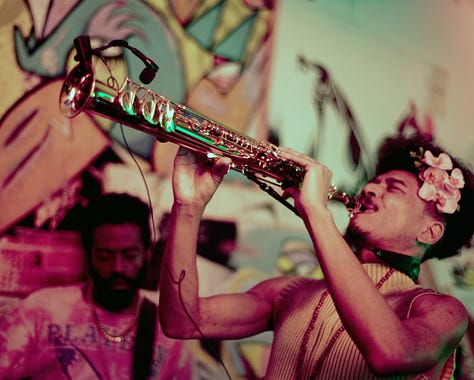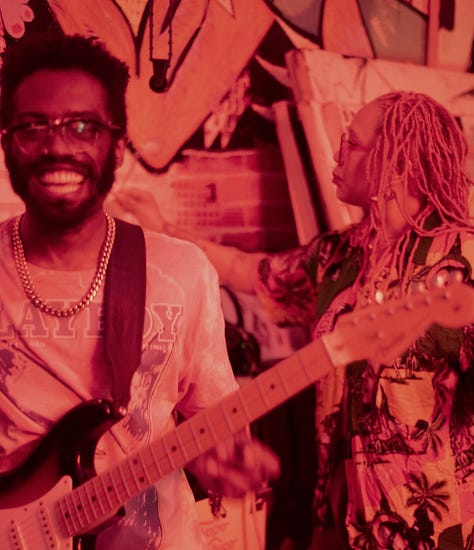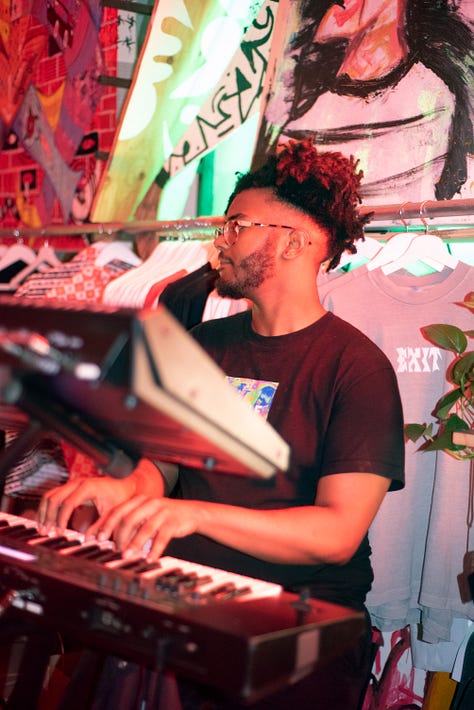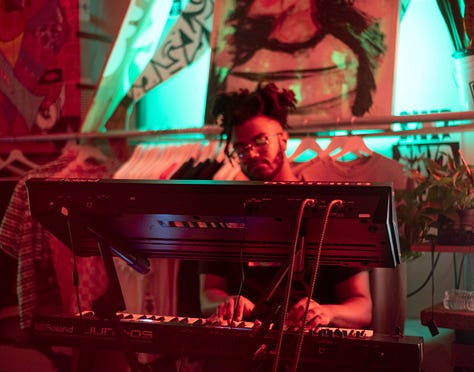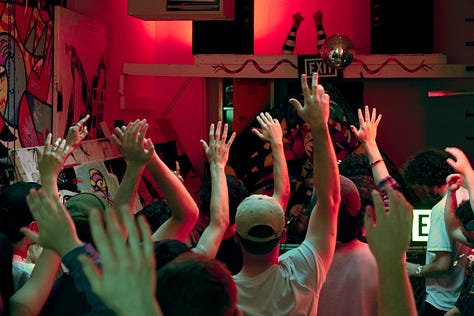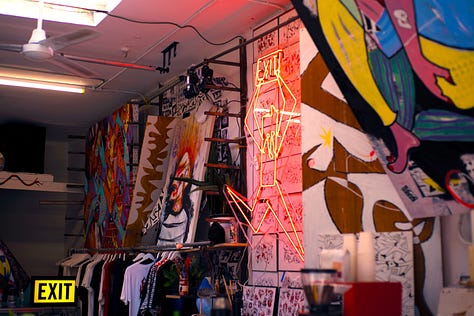Allston’s Biggest Block Party
Residents, artists, and musicians reclaim a local park, turning it into a space for community gathering, art and expression
Walls made of recycled plastic bottles. Handmade crochet bird feeders hanging from trees. Murals on buildings and storefronts all around. Local artists have transformed a park in Lower Allston – the Fern Triangle- into a free space for art, expression, and conversation.
Once a month, streets surrounding the park are closed to cars and turned into a skatepark with live music, independent thrift vendors, and free spaces to paint and collage.
By night, neon lights turn on and local musicians playing jazz, hip-hop, or rock can be heard from across the street in a garage space turned art gallery, EXIT. Curated and designed by Sam Fish.
EXIT was previously located in Somerville, then Downtown Crossing until it found its current home on Franklin Street in Lower Allston.
Fish, who grew up in the neighborhood, said he always walked past the Fern Triangle and felt like it was the perfect access point for people to come together. “I moved EXIT to Allston because the neighborhood already had creative bones, it felt like fertile ground with a residing cultural ecology,” He said.
The self-described “social sculpture” was set up in an effort to rebuild culture in Boston. Fish frequently collaborates with Berklee students and other up-and-coming artists to showcase their work, using his gallery and the adjoining park as “the canvas.”
“It’s a way to reclaim the neighborhood, it’s for the people, and what the people want is a space to talk, be authentic, and create things with each other,” said Allston resident Gabriella Marque.
Marque said she frequently attends events at the Fern Triangle.
“There is no entrance fee which is great; most vendors here have a pay-what-you-please system, too,” Marque said. “This makes the space so much more inclusive.”
Parked between the Fern Triangle and EXIT is a converted van. The van is home to Tov Demirel, an aspiring musician from Turkey who opens his home-on-wheels up to people who attend park events.
“The gallery lets me use the parking space for free, and they use my van as extra seating during events,” Demirel said. “It's perfect, I get to be around so much music, and meet so many inspiring people.”
According to Demirel, the van is the only way he can pursue his dream of being a musician. “Rent is so expensive in Allston; it just does not support artists anymore.” He said.
Demirel situation is not unique. According to Boston Pads, an online apartment rental platform, experts predicted a 5 to 7 percent increase in apartment prices — from $1,600 to $1,712 — in Allston in 2022.
Rachel Kase, an urban planner who lives in Allston, said that this price increase can be attributed to inflation, gentrification, and the 2-year stagnation in the market as a result of the pandemic.
“Housing prices are rising so fast; rent is so expensive, people that made the fabric of Allston are no longer able to afford to live here,” Kase said.
Kareena Sadhin, who has lived in Allston for 20 years, said she is moving out of the neighborhood soon because of a recent rent hike.
“So many small businesses have had to shut down, especially during the pandemic; it's hard to find places to go around here that feel accessible,” she said.
Allston-based musician Ryan Quan said the pandemic forced music venues to shut their doors, which made spaces for creative expression sparse.
“I saw the landscape of Allston change, independent music venues like Great Scott closed down, and everything became so expensive and exclusive,” he said. “It made me feel like an outsider in my own neighborhood.”
Quan said he frequently attends live music performances at EXIT. According to him, spaces like this provide sanctuary to a local population searching for ways to grapple with the changes in the area.
Rapper and Berkley student Maz, who has played shows at EXIT, said that the space fueled new talent.
“There is a lot of intimacy between the performer and the crowd,” Maz said. “ It allows new artists to connect with an audience in a free-form way.”
Performance artist Lara Cho said that the Fern Triangle and gallery function as a space of protest for many.
“I want to feel like I can take a bite out of the city, at a time where exclusivity holds so much value, a space like this, that is for everyone, feels like rebellion.”
